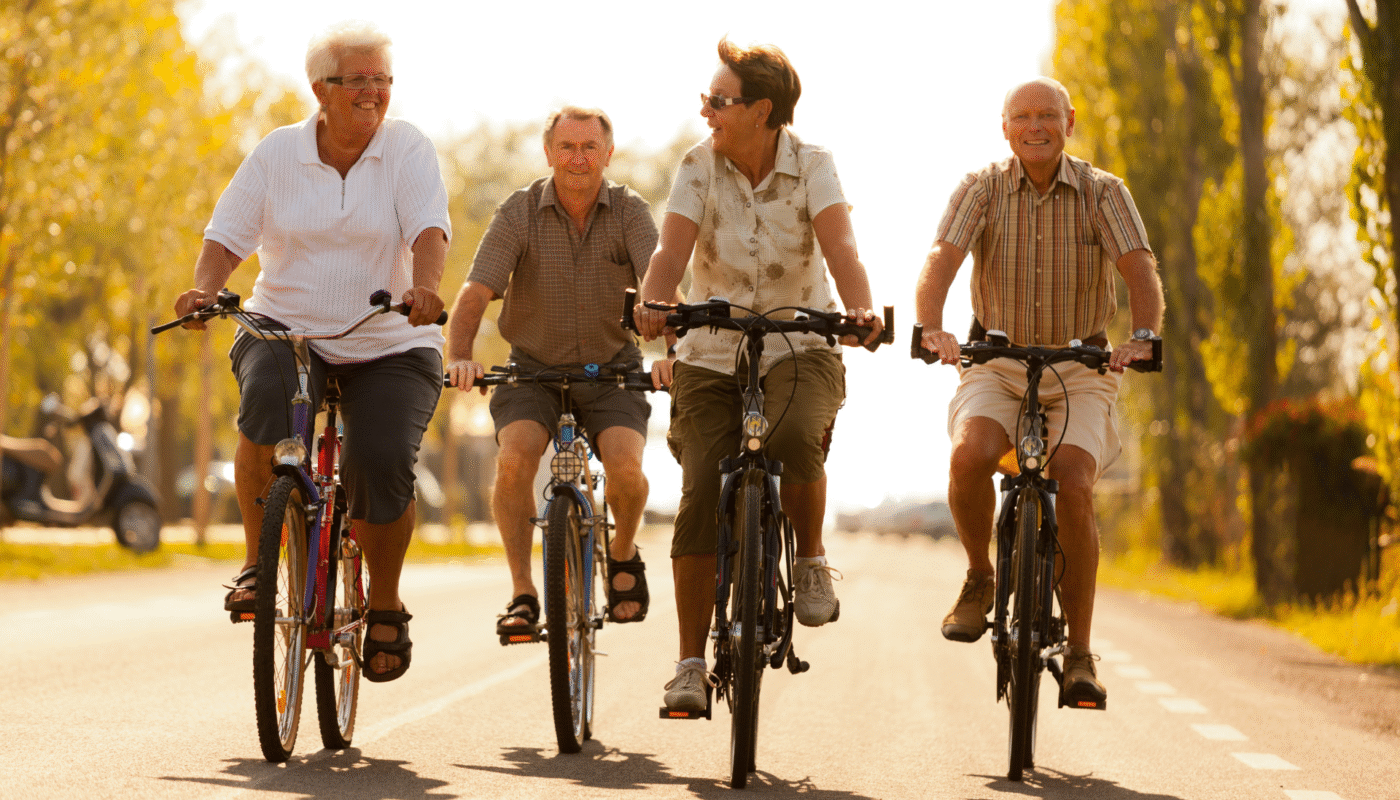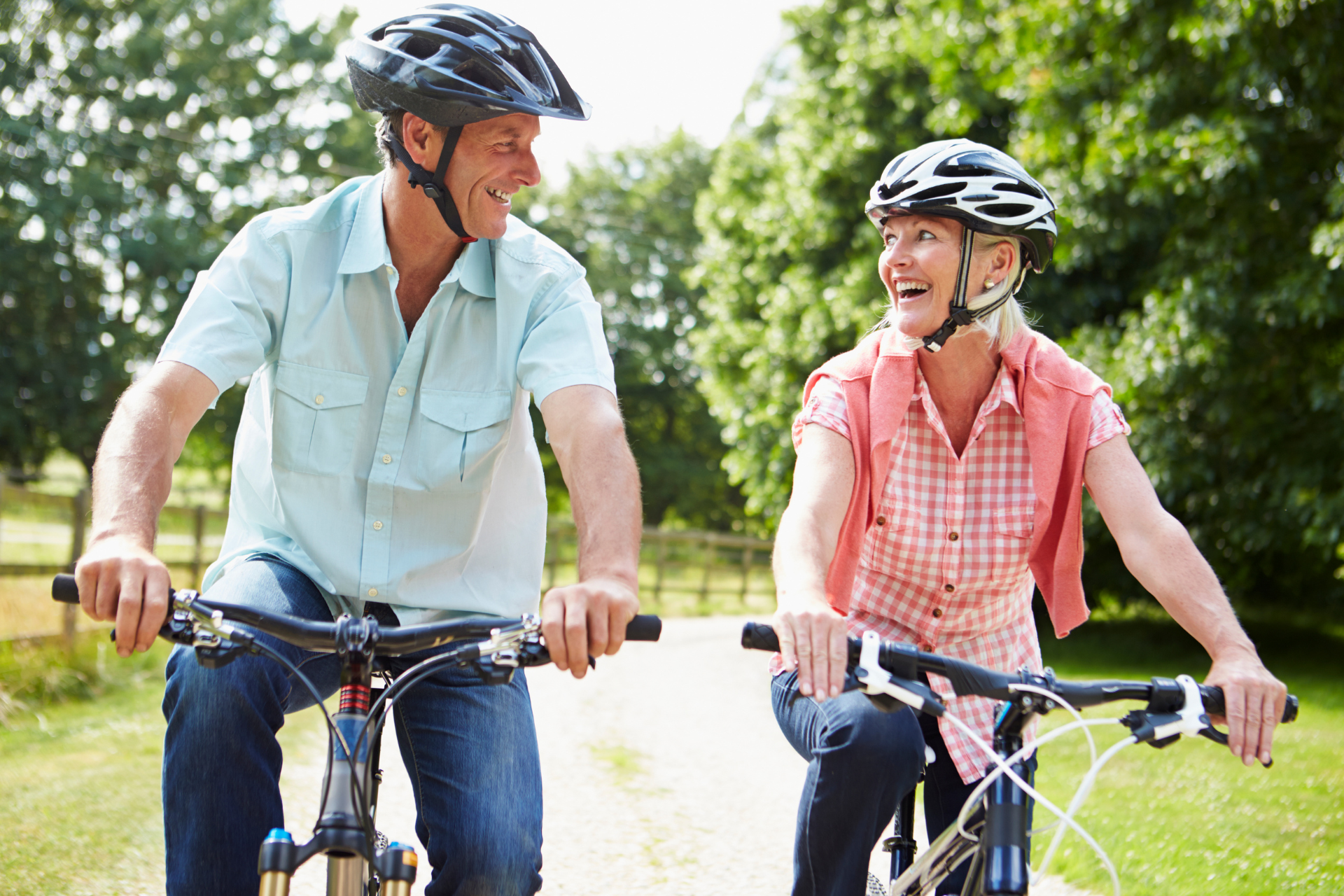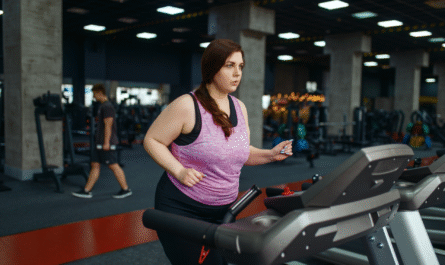Benefits of bike sharing for health extend far beyond just saving money or reducing carbon emissions. They touch nearly every aspect of personal well-being, from cardiovascular fitness to mental health, to creating healthier cities overall.
With bike sharing programs popping up in urban centers around the globe, now is the time to examine how hopping on a shared bike can positively impact your body and mind.
1. Cardiovascular Health Boost
One of the most immediate benefits of bike sharing for health is the improvement in cardiovascular function. Cycling is a vigorous aerobic activity that gets the heart pumping, increases blood circulation, and strengthens the heart muscle.
Regular aerobic exercise, like biking, has been shown to reduce the risk of heart disease, stroke, and hypertension. Shared bikes make this kind of exercise more accessible by eliminating the need to own a bike or worry about maintenance.
Commuting by bike instead of driving or using public transport turns otherwise sedentary time into active time. According to the American Heart Association, just 150 minutes of moderate-intensity aerobic activity per week can dramatically lower the risk of cardiovascular problems.
Bike sharing fits naturally into a daily routine, riding to work, school, or errands, making it easier to hit that weekly target without setting aside extra time for the gym.
Moreover, the convenience and low barrier to entry encourage more frequent rides. Because you can pick up a bike when needed and leave it at a nearby station, you’re more likely to incorporate physical activity consistently. Over time, these small bursts of effort accumulate, leading to long-term cardiovascular health benefits.
2. Weight Management and Obesity Prevention
Bike sharing systems provide a practical solution for those looking to manage their weight or prevent obesity. The calorie-burning potential of cycling is significant: a 30-minute bike ride can burn between 200 to 500 calories, depending on intensity and body weight. When this activity is integrated into a daily routine, it supports a calorie deficit, which is essential for weight loss or maintenance.
Unlike gym memberships or structured workout programs, bike sharing lowers the commitment threshold. This accessibility can be a game-changer for individuals who struggle with traditional fitness regimes. They can start slow, a short ride to the grocery store or a scenic cruise through the park, and gradually build stamina and confidence. The lack of upfront investment also removes financial obstacles that might prevent people from adopting a more active lifestyle.
The social aspect of shared biking also plays a role. When others in the community are riding, it creates a culture of movement and normalizes active commuting. This collective shift supports healthier habits and helps combat sedentary lifestyles, which are a leading cause of weight gain and related chronic illnesses like diabetes.
Also Read: 6 Things Women Over 50 Should Do Every Night Before Bed, According to Experts
3. Mental Health and Mood Enhancement
Cycling isn’t just good for the body; it’s excellent for the mind. Physical activity like biking increases the production of endorphins and serotonin, brain chemicals associated with happiness and reduced anxiety. Bike sharing enables spontaneous rides that can lift your mood and break up the monotony of daily life.
Exposure to sunlight and fresh air while biking enhances vitamin D levels, which also contributes to better mental health. People who suffer from seasonal affective disorder (SAD) or general depressive symptoms often benefit from increased outdoor activity. Bike sharing systems make it easier to grab a bike on a sunny day and get those mood-boosting benefits, even if only for a few minutes.
Moreover, biking can serve as a form of active meditation. The rhythmic motion, focus required, and sensory engagement help many riders achieve a meditative state, reducing stress levels.
For urban dwellers constantly surrounded by screens and noise, a bike ride can offer a much-needed mental reset. This simple shift in how we get around has the power to combat stress and promote emotional resilience.
4. Improved Respiratory Function
Riding a bike regularly improves lung capacity and respiratory health, which are essential elements of overall well-being. The deep, rhythmic breathing that occurs while cycling helps increase oxygen intake and improve lung function over time. For those recovering from mild respiratory issues or looking to build stamina, cycling is an excellent low-impact option.
Bike sharing plays a unique role here. It enables short, manageable rides that can be tailored to individual fitness levels. For beginners, a few light rides per week can yield noticeable improvements in breathing and energy levels. As fitness improves, riders can gradually increase duration and intensity, further strengthening their respiratory systems.
Additionally, increased cycling usage reduces car traffic, which in turn lowers urban air pollution. Cleaner air benefits everyone, but especially those with asthma or other respiratory conditions. By choosing to ride a shared bike instead of driving, individuals contribute to a cleaner environment, creating a positive feedback loop of health improvement both for themselves and the broader community.
5. Musculoskeletal Strength and Coordination
Cycling works a wide range of muscle groups, including the legs, glutes, and core. Regular rides on shared bikes contribute to stronger muscles and improved joint function. Unlike high-impact activities like running, biking is gentle on the knees and hips, making it suitable for people of all ages and fitness levels.
Bike sharing promotes regular, sustainable use of these muscle groups. Since many trips on shared bikes are relatively short, they serve as frequent, low-intensity workouts that reduce the risk of overuse injuries while still building strength and endurance. This consistency strengthens bones and enhances flexibility, key components of musculoskeletal health.
The act of balancing, steering, and navigating city streets also hones coordination and motor skills. These improvements are especially important as we age, helping to prevent falls and maintain independence. For children and older adults alike, bike sharing offers a safe and structured opportunity to enhance physical control and body awareness.
6. Community Health and Social Wellness
The benefits of bike sharing for health extend to the community at large. Increased use of shared bikes helps decrease traffic congestion, lower noise pollution, and improve air quality. These environmental improvements have direct and indirect effects on public health, such as lower rates of asthma, cardiovascular disease, and stress-related disorders.
Bike sharing fosters social interaction and community engagement. When more people use bikes, public spaces become more vibrant and pedestrian-friendly. This encourages outdoor activity, spontaneous conversation, and neighborhood cohesion, all factors linked to better mental and emotional health outcomes. Cities that prioritize cycling infrastructure tend to have healthier, happier residents.
Shared biking systems also make health equity more attainable. By providing affordable transportation options, they help bridge the gap for underserved populations who may lack access to gyms, private bikes, or reliable transit. In this way, bike sharing supports inclusive health improvements, ensuring everyone has the chance to benefit.
7. Long-Term Lifestyle Changes
Adopting bike sharing can be a gateway to broader lifestyle transformations. Starting with a few casual rides can inspire a deeper commitment to health and wellness. Once people experience the ease and benefits of cycling, they may be more inclined to try other active habits such as walking, jogging, or mindful eating.
The visibility of shared bikes reinforces these choices. Seeing neighbors, coworkers, and friends opting for healthy transport creates a sense of social proof. It signals that health-conscious decisions are valued and supported, making it easier for others to follow suit. This ripple effect can lead to community-wide improvements in lifestyle and well-being.
Finally, the long-term use of bike sharing systems contributes to routine-building. When biking becomes the default mode of transport, physical activity is no longer a chore but a natural part of the day. These built-in habits are more sustainable than sporadic workouts, leading to lasting health gains.
Final Thought on Benefits of Bike Sharing for Health
The benefits of bike sharing for health are too significant to ignore. From better heart health and weight control to reduced stress and improved respiratory function, shared biking transforms the way we live and move.
It empowers individuals, strengthens communities, and lays the foundation for a healthier society. If you’re looking for an easy, affordable, and effective way to boost your well-being, a bike share membership might just be the best investment you can make.
FAQs on Benefits of Bike Sharing for Health
Is bike sharing safe for beginners?
Yes, most bike share systems are designed for ease of use and are equipped with safety features. Start with low-traffic routes and wear a helmet for added safety.
How often should I use bike sharing to see health benefits?
Even riding 3-4 times a week for 20-30 minutes can lead to noticeable health improvements over time.
Can I lose weight by using bike sharing?
Absolutely. Regular cycling helps burn calories, supports a calorie deficit, and boosts metabolism—all key components of weight loss.
What if I have joint pain or previous injuries?
Cycling is a low-impact activity that is generally gentle on joints. However, consult a medical professional before starting any new exercise regimen.
Are there any mental health benefits to bike sharing?
Yes, cycling can reduce stress, anxiety, and depression by releasing feel-good hormones and providing opportunities for outdoor time and mindfulness.
























